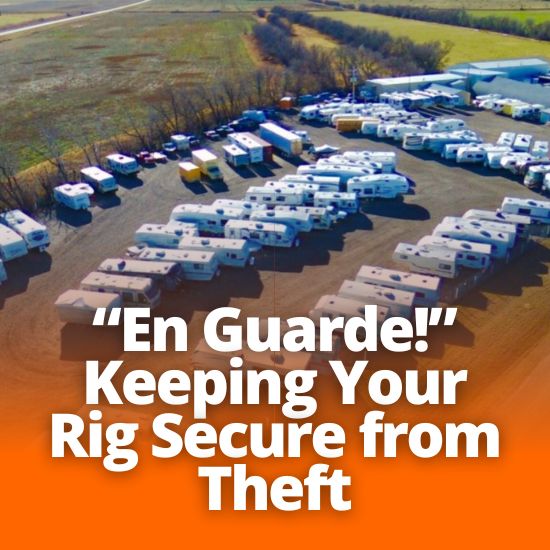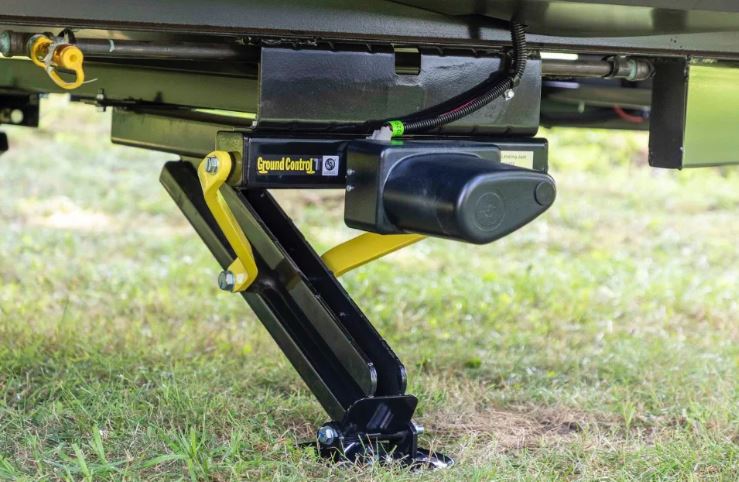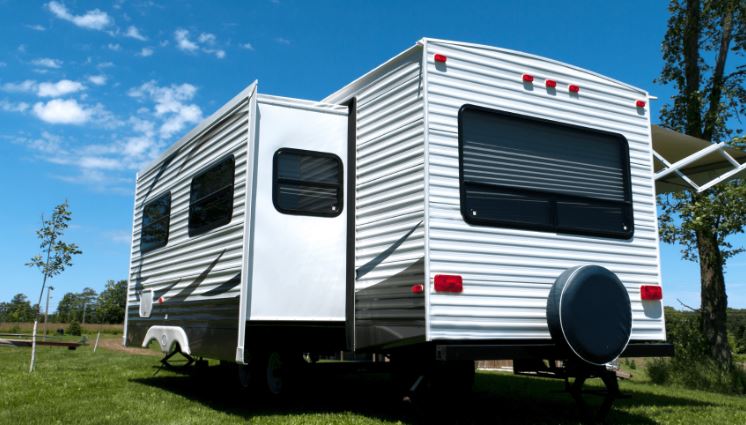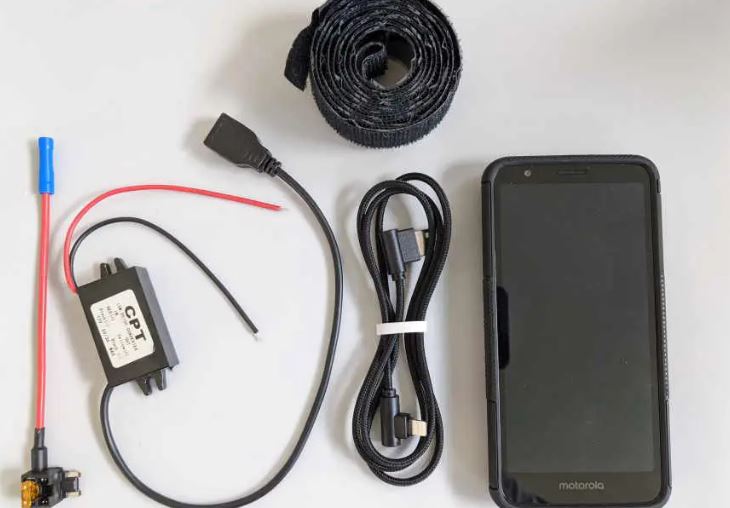
“En Guarde!” Keeping Your Rig Secure from Theft
OK you’ve invested in a trailer or an RV and all the accessories, you’ve got every hook-up, emergency supplies, maybe you refinished the bathroom or replaced the mattress and added memory foam. You want to ensure that your rig is sufficiently protective from theft. We’ve put together a list of (perhaps common sense) tips to help you secure your rig.
Now, despite these tips, if someone really is determined to leave with your rig they’re going to find a way, but these might either delay them long enough for you to notice or help you find it.
- Keep your unit locked. This is going to seem obvious which is why it’s tip numero uno, but it’s always smart to double check when you leave your unit for any length of time to make sure all your doors and windows are closed and locked.
- In the off season (if possible) park your unit at a secure, indoor facility OR if you’re parking at home: in an area you can easily keep an eye on it. This could be in your yard behind a fence or in front of your house where you can see it from a door or window or with a security camera.
- For towable units: Use a hitch lock, these are designed to keep your trailer hitch and receiver together and prevent anyone from lifting the receiver and they won’t be able to unhitch the trailer without unlocking it. While these can still be defeated, they will act as a deterrent. An addition to this would be to use a lock on your pin connector as well.


- For motorized units: Remove your chassis battery.
If your unit can’t run it is a lot harder to move. Another option is to have a “kill switch” (or rather an RV battery disconnect switch, but that’s less fun to say) installed. These work exactly like they sound, they cut off the power from the battery to the main circuits of the RV without requiring you to disconnect the battery itself.
- Put your jacks down.
Your unit cannot be moved with those down, well they can but it’ll make a real loud ruckus. If your jacks are down when attempting to depart, they’ll create not only an incredibly loud noise but can create sparks as they’re dragged. In the case a thief actually gets on the road they will be noticed and pulled over for their unlicensed fireworks display.
- Wheel locks! Immobilize your wheels in some way. This can be through good quality chocks (none of those plastic ones that flatten super easily) or heavy-duty wheel clamps. Normally seeing one of those on your vehicle means you’ve got a hefty fine coming, in this case they’ll save you money.
- Put your slides out. Now this can be controversial when storing your unit, but having those slides out will draw attention and can take up time if a thief wants to bring them in. You can also store them with a cover, which will take time to remove or will draw attention if they start towing your rig away.
8. If possible, park something heavy in front of your unit like an additional trailer, or another vehicle, quad, or something else. This adds another thing for thieves to deal with or get past to move your trailer or RV. The key here is frustration, think about trying to find the TV remote in an angsty teenager’s disaster of a room and you’ll get the idea.

- Tech Security and Monitoring: In the glorious twenty-first century, we’ve been equipped with easy to install tech to help you secure everything!
Now, in the case where you’ve done everything to can to make it difficult for someone to take your trailer or RV and someone still gets your unit on the road, hopefully you’ve installed a GPS tracker into your unit. We’re not talking about an Apple tag or something similar that requires Wi-Fi to operate, but a GPS that does not require internet or Bluetooth to connect to your phone or computer to track it.
If you’re unfamiliar with the difference, an Apple tag or other similar items work through the internet, cellular, or Bluetooth, and can often be detected by other devices quite easily and therefore removed. If they’re out of your zone or away from Wi-Fi they’re basically useless. GPS trackers are completely independent of cellular or internet connections and work through radio connecting to satellite location data.
There are a variety of GPS trackers on the market, many specifically for RVs and trailers, so make sure you find one that works for you and consider:
Location Tracking: Different models will have certain options such as geofencing (setting up a predetermined area so you will be alerted if your rig leaves it) and speed monitoring.
Battery Life: How often will you need to replace the power unit? Most units have long life batteries, so make sure you find one that works for you.
Mounting/Installation: Trackers can be installed differently depending on the model; some will need to be screwed into place, while others are magnetic and can be hidden under an RV.
Costs: There are generally two costs to consider when owning a GPS tracker: the purchase price and the monitoring cost, and will vary depending on model and additional provided options. Most of these systems will be connected to your phone or computer via an app, so make sure they will work in harmony with your current set-up.
Do you have any tried-and-true security methods? Let us know!
